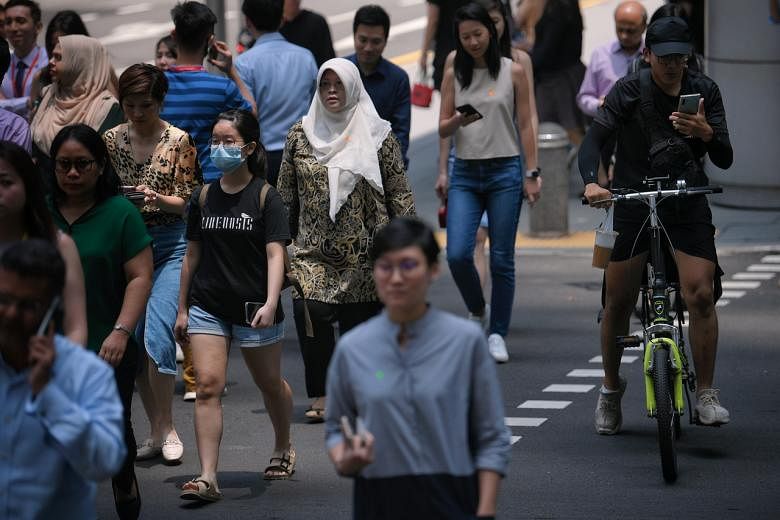SINGAPORE - Global health and financial institutions like the World Health Organisation (WHO) and the World Bank play a crucial role in coordinating the global response to the Covid-19 outbreak and its ensuing economic fallout, said Deputy Prime Minister Heng Swee Keat on Wednesday (March 11).
Mr Heng said at the ST-BT Budget Roundtable that each of these institutions shapes the response at different levels and facets of the global economy.
The WHO, for example, brings together global resources and knowledge on how to handle viral outbreaks. Hence, it is important for all countries to cooperate with it to provide up-to-date information, and not hide bad news, he said.
"It's important to be transparent about this, so we can make a proper asssessment of how the virus is, or is not, spreading."
The WHO can, in turn, look into improving testing facilities, and whether there should be a set of minimum responses that all countries ought to have, he said.
Mr Heng added that within the region, Asean and its Asean Plus Three partners - China, Japan and Korea - can coordinate responses to the outbreak as well as economic situation.
Earlier this week, the Asean economic ministers issued a statement committing to collective action to mitigate the impact of Covid-19. This includes working with industry to instil confidence in South-east Asia as a trade, investment and tourism destination, and better trade facilitation to improve supply chain connectivity.
Globally, the Group of 20 - which has evolved from a group of finance ministers and central bank governors of the world's largest economies convened in the wake of the 2009 global financial crisis to collectively deal with political, economic and health challenges - as well as global financial institutions like the International Monetary Fund (IMF) and the World Bank, will also need to coordinate policy, in particular monetary policy, said Mr Heng.
The IMF maintains the stability of the international monetary system by keeping track of the economies of member countries, lending to countries with balance of payments difficulties, and giving practical help to members. Countries can share their assessments of global economic stability with institutions like the IMF, he said.

The World Bank, on the other hand, combats global poverty - and this is important, given that Covid-19 does not respect global boundaries or make income distinctions, he added.
Mr Heng pointed out that the World Bank, and other multilateral institutions like the Asian Development Bank and Asian Infrastructure Investment Bank, played a key role in implementing "good measures" across all countries.
"They play a role in strengthening our vigilant response to this outbreak," he added.


